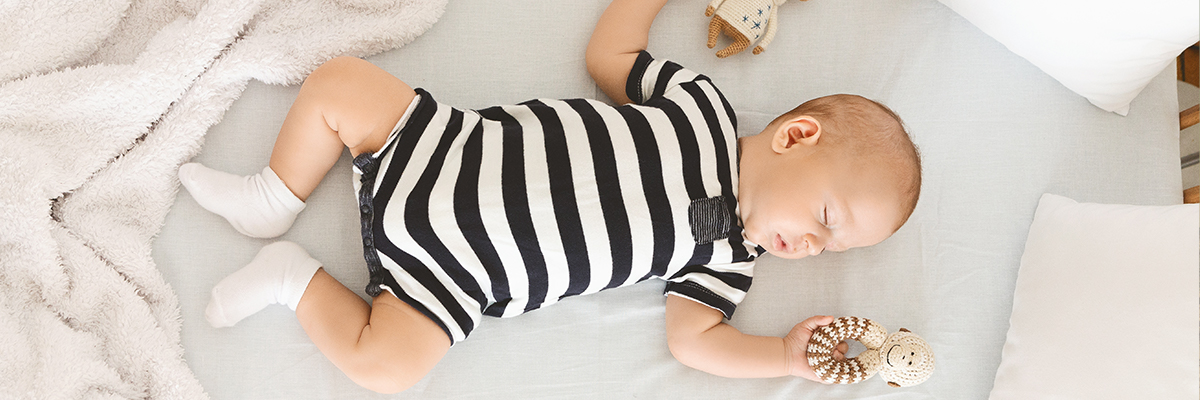
Becoming a new parent is filled with emotions, and although joy and love take center stage, they can be accompanied by uncertainty and a healthy dose of exhaustion. Are you worried your baby is sleeping too much? Or not enough? If you’re not sure what’s a normal for newborns, it’s easy to worry. So, how does sleep work for newborns?
Newborns will sleep for roughly two-thirds of the day, waking every few hours for feeding. They may be more active at night and sleep more during the day at first, but that will correct itself over time. Don’t be surprised if your baby does not sleep through the night for a while.
Smaller stomachs mean more frequent feedings, which varies depending on whether you’re breastfeeding, formula feeding, or doing a combination of both. For instance, breast milk is easier for babies to digest, so they often require more frequent feedings. Crankiness and frequent crying could signal that your baby is not sleeping enough or has another complaint. If your newborn fusses and struggles to sleep—even with a full tummy—discuss your concerns with your pediatrician.
Choosing where your baby sleeps can be as important as making sure they get enough sleep. Make sure to regulate the room temperature. A room that’s too warm or too cool could keep your baby from falling and staying asleep. Your newborn should always sleep in an appropriate bed or bassinet that is free of any blankets, stuffed toys, pillows, or bumpers. These can pose a suffocation risk. Instead, rely on cozy pajamas to keep your baby at the right temperature.
While sleeping in the same room as your baby is a great idea, avoid sleeping in the same bed. Eliminate any harsh lighting, and if your windows have blinds or curtains, make sure that any cords, ties, or other fabrics are well out of your baby’s reach.
Your baby should always be placed on their back to sleep. Avoid using sleep wedges to prop your baby on their side, and avoid placing them on their stomach.
As your baby gets older, they may roll onto their stomach. Once your baby is strong enough to roll over on their own, it is ok to leave them sleeping in that position. Regardless, back sleeping is strongly recommended by the American Association of Pediatrics to help reduce the risk of sudden infant death syndrome (SIDS).
Newborns can sleep anywhere from 16 to 22 hours per day, broken up by feeding, so any sleep within this range should be expected. Your baby may fluctuate on how much sleep they get, especially if they are experiencing a growth spurt and feeding more frequently. If your baby is sleeping more than 22 hours per day, contact your pediatrician to see if they are concerned. If your new baby sleeps less than 16 hours per day, try adjusting the room temperature and lighting to make the room more sleep-friendly, play soft music to entice sleep, or hold your baby until they fall asleep.
Every baby is different, and it may take some time for them to settle into a schedule. As they get older, their schedule may become disrupted by growth spurts or teething.
If you have any questions about your baby’s sleep, our pediatric staff is on call 24/7 and happy to answer them.